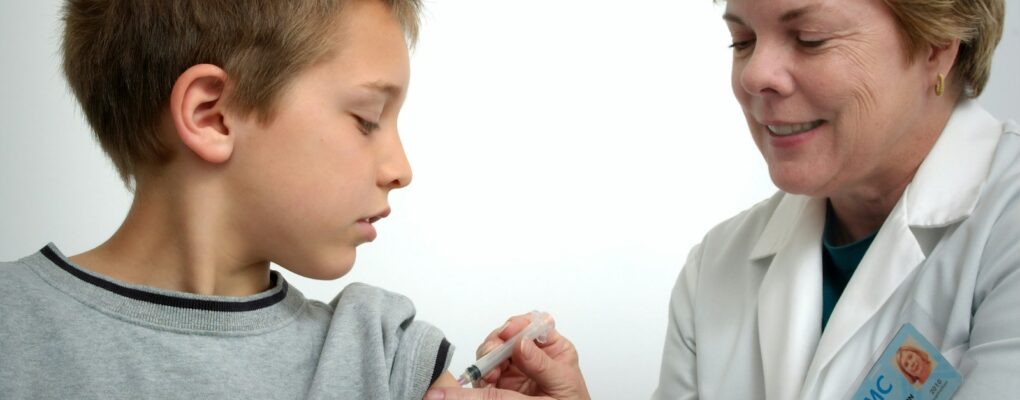
Pediatrician visits are important milestones in a child’s health journey, and for parents of donor conceived children, they may raise questions about what information to share with your child’s healthcare provider.
Here are some tips to help you navigate conversations with your child’s pediatrician
- Be Open and Honest
In an ideal world, medical providers would ask each patient if they were adopted or donor conceived prior to gathering a medical history to ensure the collection of genetic relatives’ medical information. However, until this practice is universally implemented, the responsibility to proactively disclose donor conception rests with the parent/caregiver during pediatric appointments. When discussing your child’s medical history with their pediatrician, honesty is key. While it may feel uncomfortable at first, sharing that your child was conceived through egg, sperm, or embryo donation provides important context for their medical care. Pediatricians rely on accurate family medical histories to make informed decisions about your child’s health. - Share What You Know and What You Don’t Know
While you don’t need to disclose every detail about the donor conception process, it’s helpful to provide relevant information that may impact your child’s health. This can include any known medical history from the donor and/or genetic test results. Whether you received a lengthy multipage medical history and genetic test results for your donor or a more limited medical history, consider providing all medical documents to your pediatrician to be scanned into your child’s medical records.
Because there are so many different modalities to using donor gametes, it may help your pediatrician to understand whether you utilized a known donor who you can contact, an anonymous donor, or something in between. It may also be helpful for your doctor to understand any limitations to the donor’s family history, for example, how long ago the family history was collected and/or updated and whether you have received any new medical information from the donor, gamete bank, or other recipient parents who used the same donor. - Advocate for Inclusive Language
Tell your doctor how you and your child reference your donor. For example, you might say, “My wife and I conceived Jackson using a sperm donor. My wife is Jackson’s biological mother, and I carried him. Our sperm donor is named Ethan, and we all call him Ethan, or Jackson’s biological father.” Encourage your pediatrician to mirror the language your family uses when discussing your donor/your child’s biological parent.
While some providers quickly recognize diverse family structures, others may need to be reminded of the language your family uses and the role of donor conception in your child’s medical background. Don’t be afraid to advocate for your child so they will be empowered to do the same for themselves as they approach adulthood. Showing confidence and ease while discussing your child’s donor conception story can aid in fostering a healthy sense of self-identity for your child. When parents refrain from addressing their child’s donor conception and related medical history, the child might perceive it as a taboo subject or something negative, potentially leading to feelings of secrecy or shame. - Passing the Baton
Both donor conceived individuals and experts recommend that parents disclose the details of donor conception to their children early and often. As your child ages and better understands their story, you can begin to equip them for adulthood and empower them to manage their own medical care by providing them with the donor’s medical history and any contact information they may need to get in touch with the donor and/or gamete bank if additional medical history is needed. - Share Your Concerns
If you have any concerns about your child’s health that you feel may be related to their donor conception, or if you feel concerned about gaps in the donor’s medical history, share these worries with your child’s doctor so they can offer appropriate recommendations or referrals. - Consider Genetic Counseling If you have questions related to your donor’s genetic testing or the chance that your child could have a genetic predisposition for a health condition, consider scheduling an appointment with a genetic counselor. Genetic counselors help individuals understand different types of inheritance, benefits, and risks to possible genetic testing options. They can also help make sense of test results and provide recommendations on how to manage health-based genetic testing. You can use the “Find a Genetic Counselor Tool” from the National Society of Genetic Counselors to locate a local or telehealth genetic counselor to start the process.
Navigating pediatrician visits for donor conceived children requires open communication. By providing your child’s clinician with relevant information about their conception and medical history, you can ensure they receive the best possible care tailored to their unique needs.
Authored by The Donor Gamete Genetic Counselors
This article represents a collective effort from a group of genetic counselors dedicated to helping donor conceived people, recipients, and donors. Our goal is to offer transparency regarding the processes involved at gamete banks.
Katie Hornberger, MS, CGC
Heather Kamen, MS, CGC
Kathryn Lockwood, MS, CGC
Jennifer Luque, MS, CGC
Brynn Persky, MS, CGC
Jessica Park, MS, CGC
